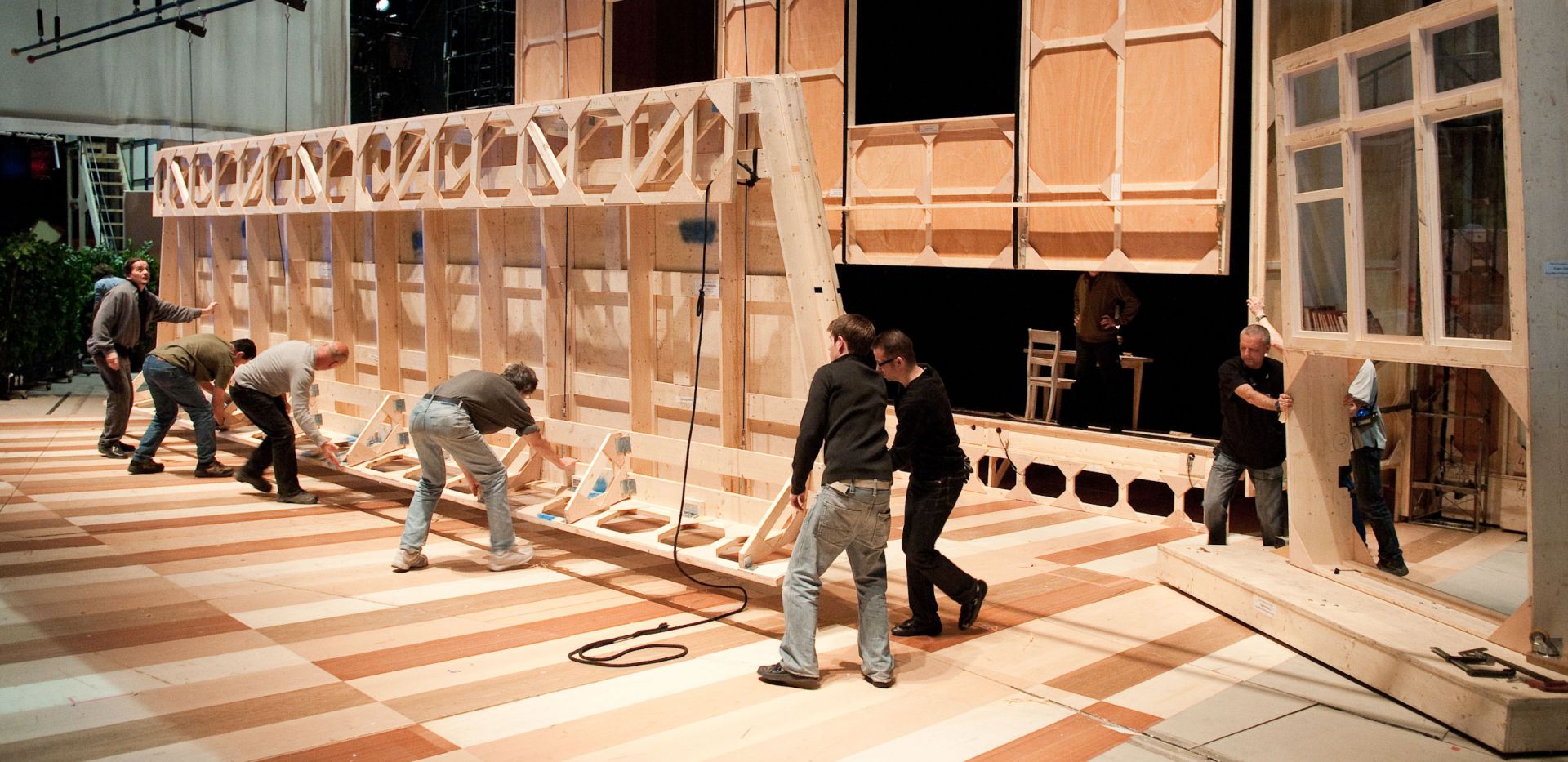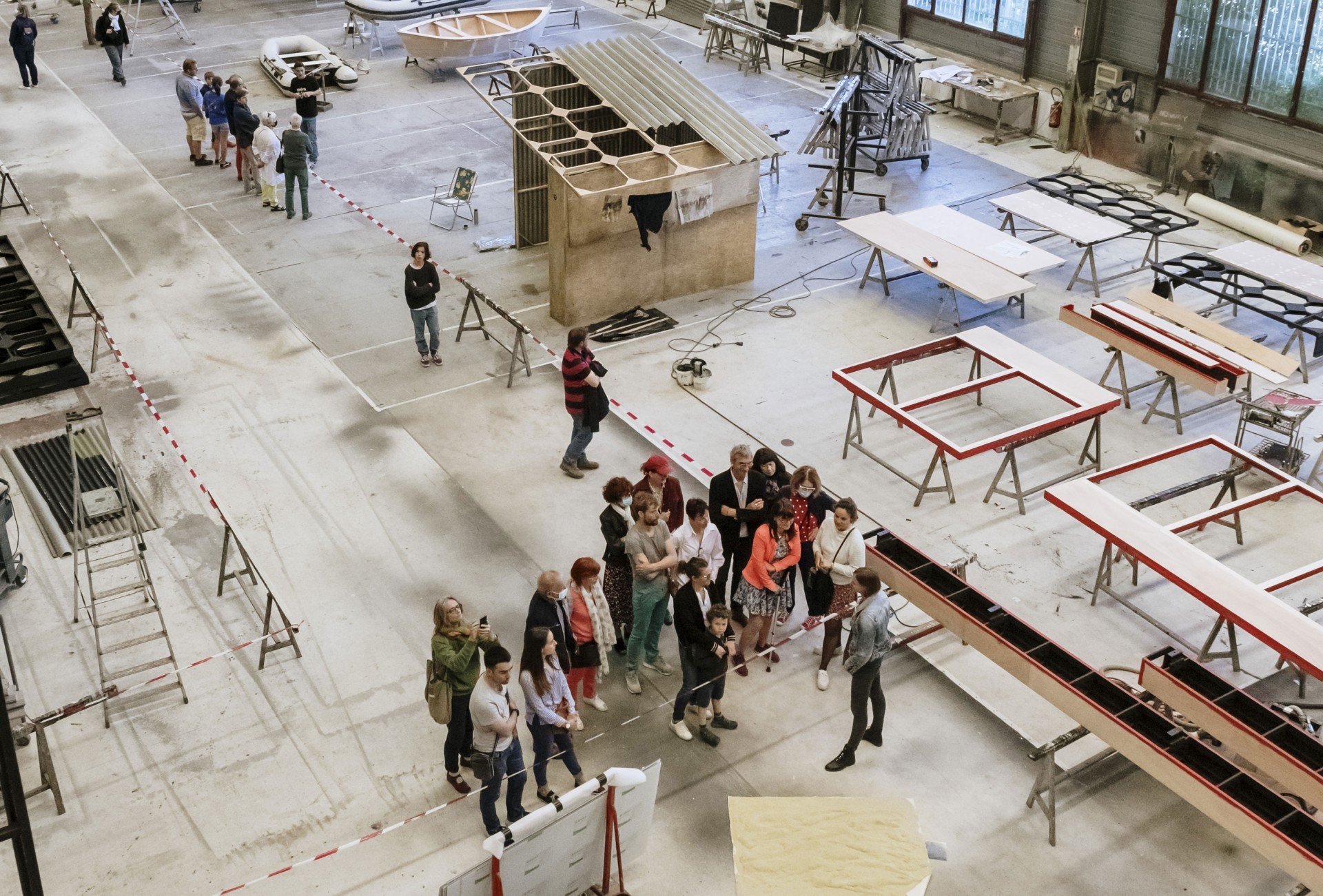Green Opera
The Lyon Opera in an everchanging world

As an internationally-renowned institution deeply rooted into its own region, the Lyon Opera has a social responsibility to reduce its environmental impact, and has actively been working towards that goal since 2008. Our green transition policies revolve around three levers on local and sector-specific scales.
Lever No. 1 – Fuel the imagination and create new stories
Work at the service of artistic creation
Green transition issues are a reminder of the importance of intangible goods: the arts play a major role in the preservation of living things. The Lyon Opera is committed to creating new works while preserving and presenting pieces from its repertoire.
Work with artists with similar values on life
Mycelium, reprised at the Maison de la Danse and sent on tour, provided the opportunity for new takes on living things, while the Opera On the Road of 2024, Le Sang du Glacier, questioned our viewpoints on ecological issues through the lens of fiction. Time Will Tell, the Maîtrise piece, allowed the young generation to share their ideas on their future in this world.
Make shows accessible to all and reach out to audiences
The Lyon Opera strives for the arts to be accessible to diverse audiences thanks to a full array of measures: focusing on all types of audiences, helping them attend shows thanks to special prices and partnerships, offering free events and tours, making the shows more accessible, devising a variety of shows for schools, and increasing access for high schools and universities. In response to issues regarding mobility and territorial disparities, the Lyon Opera devised travelling shows in the Auvergne-Rhône-Alpes region. The Lyon Opera is also active in the legal and health sectors and is committed to a large-scale project conducted with the Hôpitaux Civils de Lyon.
Lever No. 2 – Design new ways to create and perform
Contribute to the creation of a new model
The Opera and its counterparts share reflexions about the life cycle of productions, the number of performances, the development of new formats… The Lyon Opera is prepared for such challenges and ready to work towards more sustainability. It permanently benefits from artistic forces and set and costume design studios, allowing for year-round productions of new and preexisting works, at the Opera or on tour. The life cycle of productions can therefore be extended. The Lyon Opera is part of a shared funding network with other opera houses, used
to produce new shows.
Come up with alternative production methods: green set design and circular economy
As a member of the Collectif 17h25, the Lyon Opera has been carrying out a pioneer research and development project since 2022. Revolving on the standardization of set components, the project’s main goals is to reduce the carbon footprint generated by set building and transportation. The first prototypes are tested on 2025 productions. The results of the experiment will then be shared with counterparts and contribute to durable changes in the industry.
Spread awareness and train staff and master builders
The Lyon Opera is committed to spreading awareness and train its staff as well as guest artists so that professionals can contribute to change as a community. In 2024, Some of the Opera’s staff were offered the opportunity to participate in workshops thanks to the City of Lyon’s Transition initiative
Lever No. 3 – Reduce our carbon footprint and reinforce efficient energy use
Work towards new ways to move
A recent study on the audience’s modes of transportation led the Lyon Opera to engage in discussions with local cultural actors and mobility experts in order to fulfil users’ soft mobility needs (parking spots, headphones, batteries…) We are adamant that the transportation of artists and productions must be tackled by a network of cultural actors. Consequently, the Lyon Opera takes part in devising shared criteria in this regard, and using them in its trip booking policies.
Energetic performance of our facilities
Thanks to real-time measurement, the Lyon Opera has implemented specific solutions to control and reduce its water and energy footprints, with a 50% reduction goal between 2019 and 2030: we programmed our systems, replaced lighting systems, made several improvements… The Opera already managed to reduce its energy use by 40%. Our current goal is about intertwining our energetic goals with the various human and artistic activities conducted on our premises.
Reduce waste
Since 2023, 90% of recycled waste is dealt with in accordance with current regulations thanks to special equipment provided with relevant information. The Lyon Opera included the recycling of biodegradable waste to its measures, and is setting on the recycling of paper and cardboard waste for 2025. The Opera is currently a trial site for the City of Lyon’s zero-waste program.
Green purchasing
The Lyon Opera reinforced the implementation of carbon and CSE criteria on various markets to change its purchasing policies and ensure ethical collaborations with all our service providers.
Digital sobriety
The Lyon Opera has vowed to track its digital carbon footprint and set up a plan to limit it through several measures, including sustainable management of IT and phone infrastructures, improvements of digital documentation use, better control over stored data and reasonable use of digital communication.
The Lyon Opera’s green policies are constantly evolving and feeding from the networks we are part of: the Collectif 17h25 for green design and field initiatives; the Agora Lyon 2030 – an advisory council which gathers organizations to work towards a project of making Lyon a carbon-neutral city by 2030; the Convention des Entreprises pour le Climat (Business Climate Convention) that helps companies question their models; REEVE, a network for sustainable events, and the Augur Labs Numérique Responsable program.
Soutenir l'Opéra
Engagez-vous et contribuez à la concrétisation de ses missions et de ses projets
